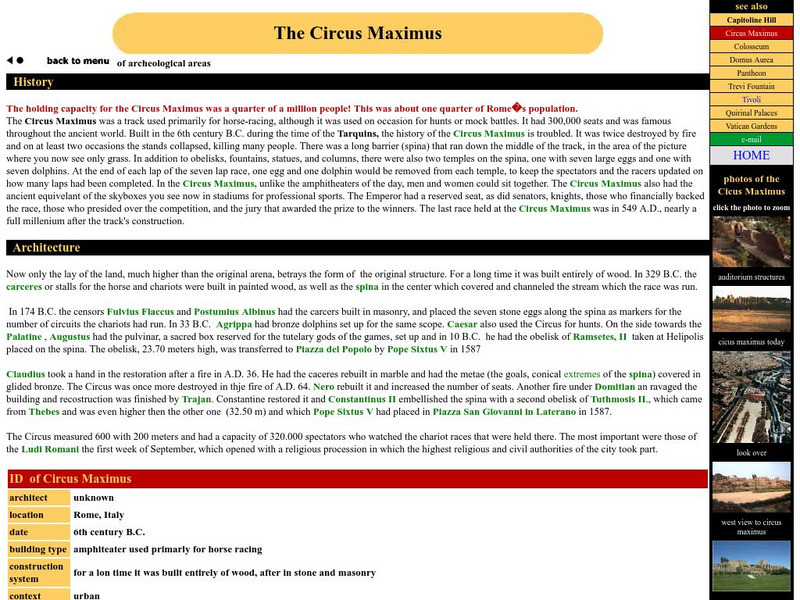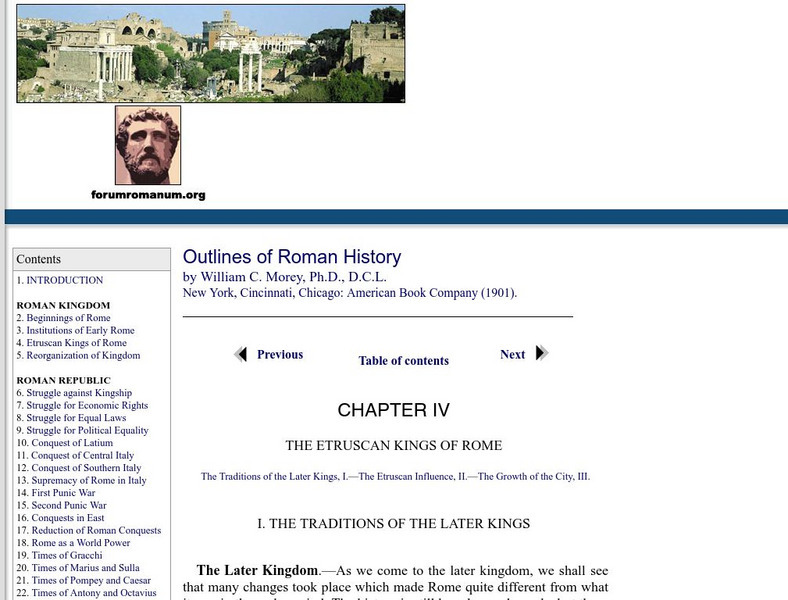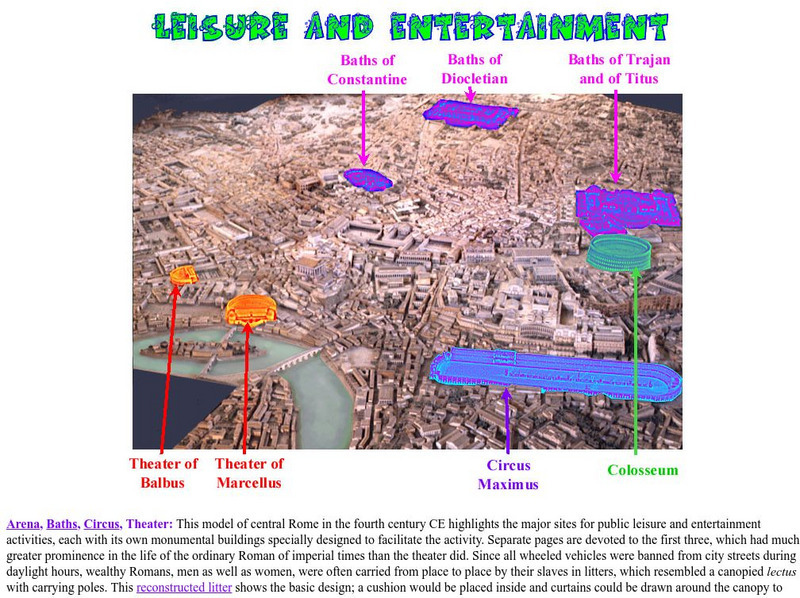Hi, what do you want to do?
Curated OER
Circus
In this Kids' Page worksheet, students read a short passage about the circus. Students then respond to 8 multiple choice questions and find 12 given words in the word search provided.
Curated OER
The Hidden History of the Roman Empire
Students compare entertainment in ancient Rome to entertainment today. In this ancient Rome instructional activity, students research the details regarding the entertainment that occurred in the Colosseum and the Circus Maximus in Rome....
Curated OER
Roman Art, Architecture, and Engineering
There is no better tool to help you explain art or architecture than an image-filled slide show. Classic Greek art, architecture, and engineering are all described with excellent visual examples and text which defines each form by its...
Curated OER
And They're Racing!
In this Roman history worksheet, students examine an illustration of a Roman racetrack. They respond to two short answer questions related to the diagram. In addition, the students write a letter to a friend who has never been to the...
Curated OER
Jean-Leon Gerome Lesson Plan
Students explore works by French painter Jean-Leon Gerome. In this visual arts lesson, students investigate the use of perspective in Gerome's work and then make their own drawings that feature the use of perspective.
Other
Rome Guide's Look at Circus Maximus
This site gives a brief history of the Circus Maximus and draws comparisons to similar venues of then and today. Also has pictures.
Stephen Byrne
History for Kids: Circus Maximus
History for Kids teaches us about the history of Circus Maximus, built for chariot races in ancient Rome and used as model for other stadiums built across the Roman Empire.
Vroma Project
V Roma Project: The Circus: Roman Chariot Racing
Provides an excellent look at the chariot racing at the Circus Maximus, the history of chariot racing, and gives an example of a day at the races. this page was created by Barbara F. McManus of The College of New Rochelle.
University at Buffalo
Suny: University at Buffalo: Pictures of Circus Maximus
University at Buffalo offers 6 pictures of the way Circus Maximus appears now. No other information goes along with the pictures, but a good way to help you imagine how the Roman stadium appeared.
Forum Romanum
Outlines of Roman History: Etruscan Kings of Rome: Growth of the City
The Etruscans introduced the concept of substantial architecture to the city of Rome. Stronger walls were built, more imposing temples were consecrated, and the Cloaca Maxima, the Roman sewer, and Circus Maximus were constructed.
Curated OER
Educational Technology Clearinghouse: Clip Art Etc: Circus Maximus
Chariot-racing was a favorite amusement, and the great circuses were arranged especially for such contests. The space was broad enough to accommodate three of four chariots side by side, each with four horses abreast.-Ridpath, 1885
Curated OER
Educational Technology Clearinghouse: Clip Art Etc: Circus Maximus
An ancient chariot racing stadium used during the Roman Empire.
Forum Romanum
Outlines of Roman History: Flavian Emperors: Reign of Vespasian
This passage from the 1901 textbook of William Morey discusses the beginning of the Flavian dynasty and its first emperor, Vespasian.
Franco Cavazzi
Roman Empire Net: Pictorial Tour of Rome
This is a picture album of sites in Rome. Each site name listed links to a picture with a brief description.
Vroma Project
V Roma Project: Leisure and Entertainment in Ancient Rome
This site has an image of ancient Rome with buildings highlighted, such as theaters and baths, plus descriptions of the different types of theatrical arts: drama, pantomime, and mime. This page was created by Barbara F. McManus of The...
















